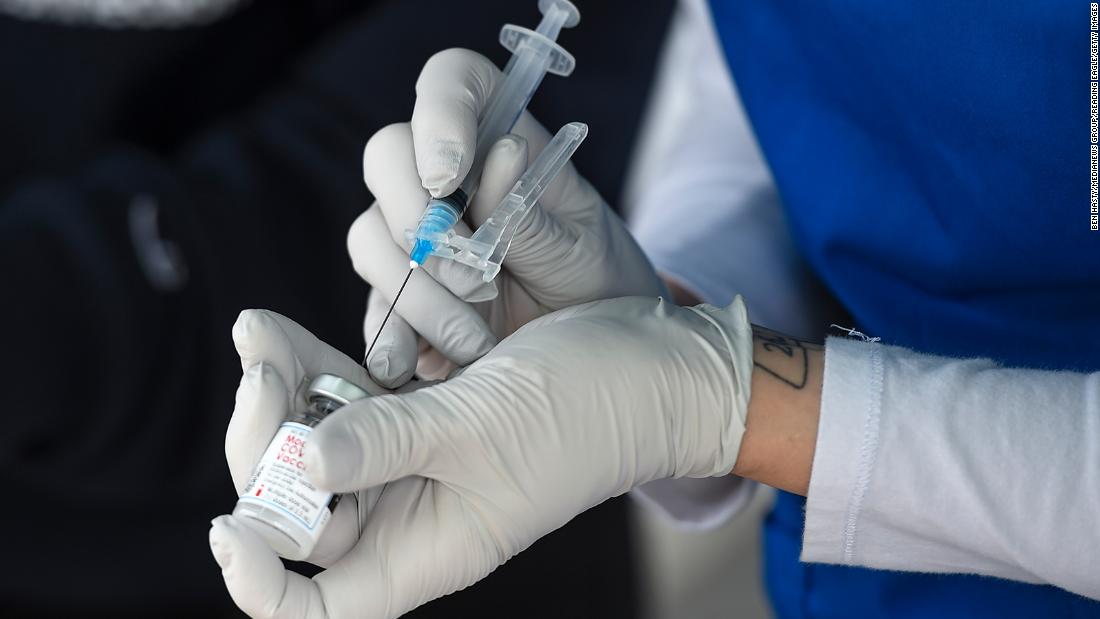

(CNN) – As U.S. health officials rush to get more covid-19 vaccines to keep the virus under control, experts now warn the country will face a new challenge in the coming weeks: vaccine supply is likely to exceed demand.
“While the timing may vary by state, we estimate that in the United States we are likely to hit a tipping point in vaccine enthusiasm in the next 2-4 weeks,” the Kaiser Family Foundation said in a new report posted Tuesday. .
“Once this happens, efforts to promote vaccination will be much more difficult, posing a challenge to achieve the levels of herd immunity that are expected to be necessary.”
Health officials, including Dr. Anthony Fauci, estimate that between 70% and 85% of the country must be immune to the virus, either through vaccination or previous infection, to suppress its spread.
So far, about 40.1% of the population has received at least one dose of the COVID-19 vaccine, according to data from the Centers for Disease Control and Prevention (CDC). And about 26% of the population is fully vaccinated, the data shows.
Declining demand for vaccines, experts say, could give dangerous variants of the new coronavirus a chance to continue to mutate, spread and unleash new waves, and delay the country’s return to an appearance of normalcy.
“We have empty spaces”
In some parts of the US, fewer people are already signing up for a vaccine.
Kristy Fryman, Emergency Response Coordinator and Public Information Officer for the Mercer County Health District in Ohio, told CNN on Tuesday that vaccine demand in the county is “slowing.”
The county’s younger population is not so eager to get vaccinated, Fryman said, and “feel that if they get COVID, it might not be that bad.”
Others, he said, choose to wait “to see what the side effects look like.”
“We went back to the project table to find out how we can vaccinate more people, but […] we can’t do much, ” added Fryman.
According to the Ohio Vaccine Control Panel, just over 27% of the county’s residents have started their covid-19 vaccinations.
At the start of the pandemic, Mercer County was one of the worst affected parts of Ohio. Now, Fryman said, the county is reporting another increase in COVID-19 cases.
“It is worrying that we are seeing an increase and the population does not want to be vaccinated,” he said.
Dr. Rob Davidson, an emergency room physician, said Tuesday in Spring Lake, Michigan, local officials are also increasingly concerned about the hesitation they see.
“I know we have empty spaces in western Michigan and elsewhere, particularly rural Michigan,” he said.
Experts recommend that people continue to wear a mask after the vaccine
For Americans who are fully vaccinated, experts said it’s best to keep wearing a mask.
“If you’ve been vaccinated, you protect yourself and you probably don’t get sick, but we don’t know how long the virus will live in your airways after you contract it,” said Dr. Jorge Rodríguez, internal medicine specialist and CNN medical analyst. “Hence, it is potentially contagious to others.”
Regarding meetings, Rodriguez said fully vaccinated Americans should choose to only meet other people who have also been vaccinated.
Experts have emphasized that even as vaccines increase, it will be important for people to continue to monitor safety measures against COVID-19 until the country can suppress the spread of the virus.
But as more vaccines are given, fewer Americans are taking steps to mitigate public health, according to the results of the Axios-Ipsos survey released Tuesday. The survey was conducted from April 16-19 and consisted of a representative sample of more than 1,000 American adults.
About 61% of respondents exercise physical distance, six percentage points less than last month and 13 points less than two months ago.
The percentage of people who always wear a mask when they go out (63%) is the lowest since the summer and is down 10 percentage points from two months ago.
And at a time when COVID-19 cases and hospitalizations are on the rise, the perceived risk of coming back to life before the coronavirus is the lowest ever at 52%.
Meanwhile, the perceived risks associated with activities such as shopping in stores and supermarkets and attending sporting events are also declining.
CNN’s Naomi Thomas and Maggie Fox contributed to this report.